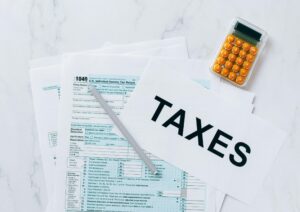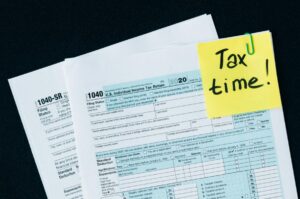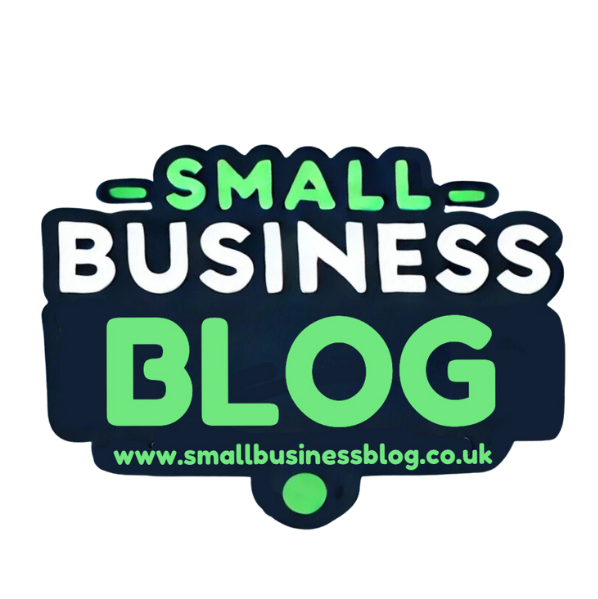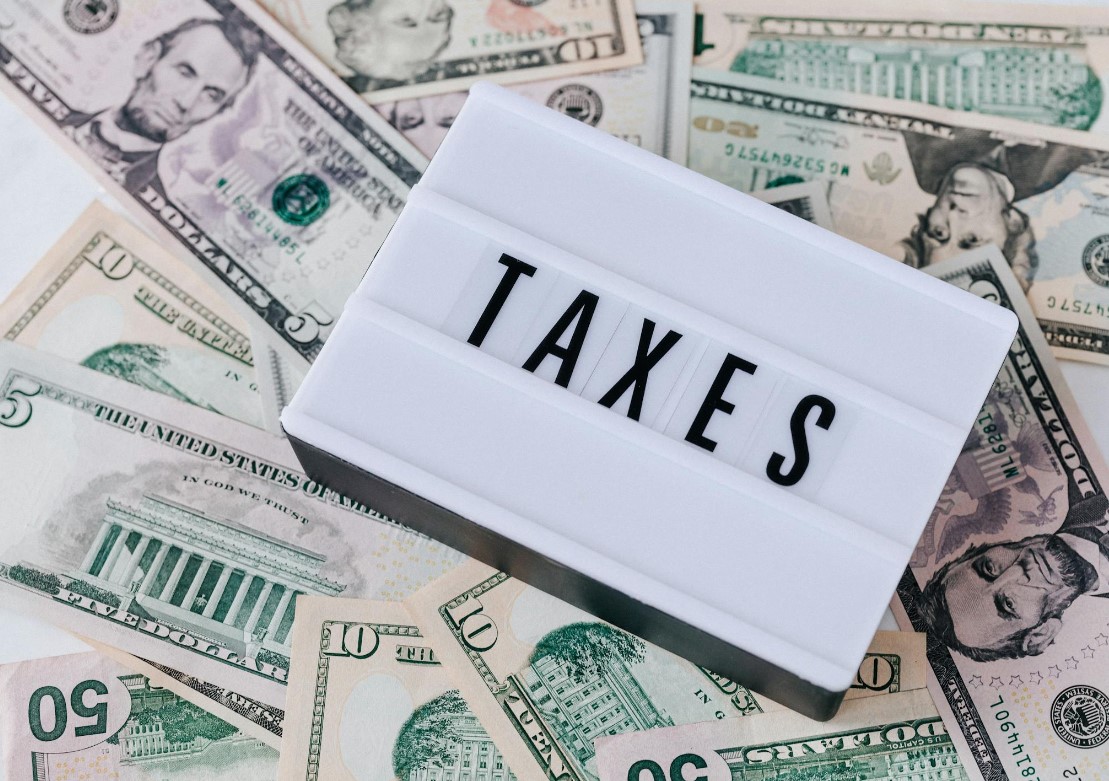How Much Can a Small Business Make Before Paying Taxes in the UK?
Introduction
Understanding your tax obligations is crucial for any small business. In the UK, knowing how much your business can earn before paying taxes can help you plan effectively and ensure compliance. This guide will explore the various tax thresholds and allowances that apply to small businesses, helping you navigate the UK tax system with confidence.
What Are the Key Tax Thresholds for Small Businesses in the UK?
Small businesses in the UK need to be aware of several key tax thresholds. The main types of taxes that affect small businesses include Corporation Tax, Income Tax for sole traders and partnerships, and Value Added Tax (VAT).

How Much Can a Small Business Make Before Paying Corporation Tax?
Corporation Tax is a tax on the profits of limited companies. As of the current tax year, the Corporation Tax rate is 19%. There is no threshold below which Corporation Tax does not apply, meaning any profit made by a limited company is subject to this tax.
- Example: If your business makes a profit of £10,000, you will owe 19% of this amount in Corporation Tax, which is £1,900.
- Filing and Payment Deadlines: Corporation Tax must be filed annually, and payments are usually due nine months and one day after the end of your company’s accounting period.
How Much Can a Sole Trader or Partnership Make Before Paying Income Tax?
Sole traders and partnerships do not pay Corporation Tax; instead, they pay Income Tax on their profits. The key threshold here is the Personal Allowance, which is the amount of income you can earn before paying any Income Tax. For the 2023/2024 tax year, the Personal Allowance is £12,570.
- Income Tax Rates:
- 20% on income over £12,570 up to £50,270 (basic rate)
- 40% on income over £50,270 up to £150,000 (higher rate)
- 45% on income over £150,000 (additional rate)
- Calculation Example: If you are a sole trader with a profit of £20,000, you would pay 20% Income Tax on £7,430 (£20,000 – £12,570), which amounts to £1,486.
- Self-Assessment Process: Sole traders and partnerships must file a Self-Assessment tax return annually, with deadlines on 31 January for online submissions.
What Is the VAT Registration Threshold for Small Businesses?
 VAT is a tax on the sale of goods and services, and businesses must register for VAT if their taxable turnover exceeds a certain threshold. The current VAT registration threshold is £85,000.
VAT is a tax on the sale of goods and services, and businesses must register for VAT if their taxable turnover exceeds a certain threshold. The current VAT registration threshold is £85,000.
- VAT Obligations: Once registered, businesses must charge VAT on their sales, submit VAT returns, and pay any VAT due to HMRC.
- Benefits of VAT Registration: Although it increases administrative work, registering for VAT allows you to reclaim VAT on business expenses.
What Are Allowable Business Expenses and How Do They Affect Taxable Income?
Allowable business expenses are costs that you can deduct from your total income to calculate your taxable profit. These expenses can significantly reduce your tax liability.
- Examples of Allowable Expenses: Office supplies, travel costs, salaries, and rent.
- Impact on Taxable Income: By deducting these expenses, you lower your overall profit, thereby reducing the amount of tax you owe. For example, if your business earns £50,000 and has £10,000 in allowable expenses, you only pay tax on £40,000.
How Do Dividends Affect the Tax Liabilities of Small Business Owners?
Dividends are payments made to shareholders from a company’s profits. If you operate as a limited company, paying yourself through dividends can be a tax-efficient way to take money out of your business.
- Dividend Allowance: For the 2023/2024 tax year, the dividend allowance is £2,000, meaning you do not pay tax on the first £2,000 of dividends received.
- Dividend Tax Rates:
- 8.75% on dividends within the basic rate band
- 33.75% on dividends within the higher rate band
- 39.35% on dividends within the additional rate band
- Tax-Efficient Strategies: Combining a salary with dividends can minimize your overall tax burden.
 What Other Taxes Should Small Businesses Be Aware Of?
What Other Taxes Should Small Businesses Be Aware Of?
In addition to the primary taxes, businesses may encounter other small business taxes and charges:
- Business Rates: Applicable to non-domestic properties like offices and shops.
- National Insurance Contributions: Both employers and employees pay NICs, with different rates depending on earnings.
- Other Taxes: Depending on your business activities, you might face additional taxes such as environmental levies or industry-specific charges.
Tips for Managing Your Small Business Tax Obligations
Proper tax management can save your business time and money:
- Keep Accurate Financial Records: Regularly update your books and maintain thorough records of income and expenses.
- Use Accounting Software: Tools like QuickBooks or Xero can simplify tax calculations and ensure compliance.
- Seek Professional Advice: Consulting with an accountant or tax advisor can provide tailored guidance and help you navigate complex tax regulations.
Comparison Table of Key Tax Rates and Thresholds
| Tax Type | Rate/Threshold | Details |
|---|---|---|
| Corporation Tax | 19% | Applies to all profits |
| Personal Allowance (Income Tax) | £12,570 | No Income Tax up to this amount |
| Basic Rate Income Tax | 20% (over £12,570) | Applies to income up to £50,270 |
| Higher Rate Income Tax | 40% (over £50,270) | Applies to income up to £150,000 |
| Additional Rate Income Tax | 45% (over £150,000) | Applies to income over £150,000 |
| VAT Registration Threshold | £85,000 | Must register if turnover exceeds this |
| Dividend Allowance | £2,000 | Tax-free dividends up to this amount |
| Basic Rate Dividend Tax | 8.75% | Applies to dividends within basic rate |
| Higher Rate Dividend Tax | 33.75% | Applies to dividends within higher rate |
| Additional Rate Dividend Tax | 39.35% | Applies to dividends within additional rate |
Conclusion
Understanding the tax thresholds and allowances for small businesses in the UK is essential for effective financial planning and compliance. By staying informed and utilizing available resources, you can navigate your tax obligations with confidence and focus on growing your business. Always consider seeking professional advice to ensure you are making the most tax-efficient decisions for your business.







